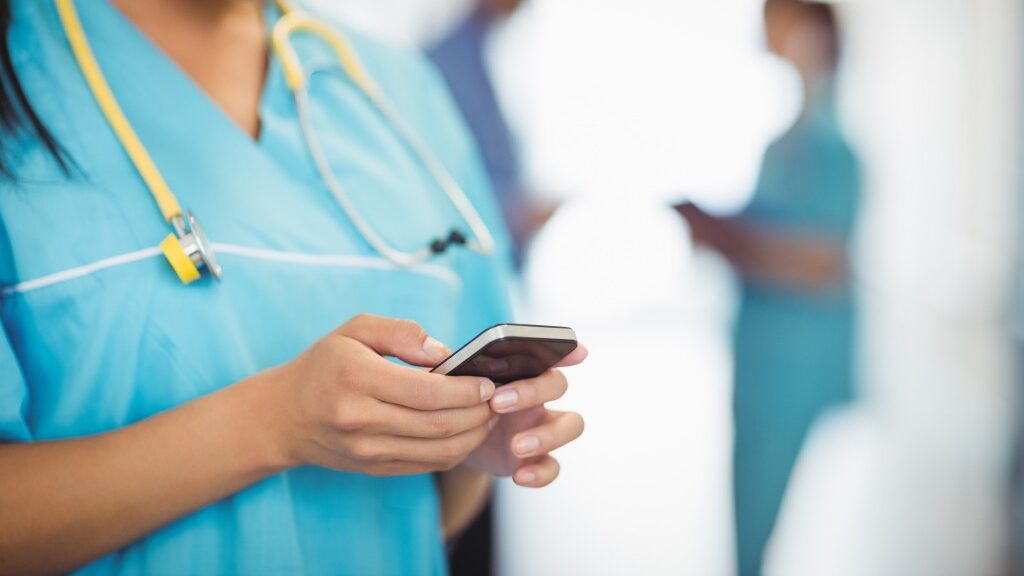The healthcare tech landscape is advancing at breakneck speed. From wearables to EHRs, there are many technological tools that provide value to nurses and CNAs, changing the way they administer patient care.
Electronic Health Records (EHRs)
EHRs have already freed up a lot of time for doctors and nurses alike, reducing the amount of paperwork and admin tasks, and freeing up more time for patient care. Additionally, patient records are available to caregivers in real-time, reducing medication errors and providing access to details such as allergies, test results, diet preferences and more.
Communication apps
Most hospitals use advanced communication systems that connect their workforce via smartphone applications such as Cortext by Imprivata. Apps such as Cortext provide a secure, HIPAA compliant platform for nurses and CNAs to communicate more effectively, replacing the pager, reducing inefficiency, and improving productivity. Using apps of this type can potentially save a caregiver 45 minutes a day or more.
Remote patient monitoring devices
Being able to monitor patient vitals remotely not only saves time in recording vital data but can reduce emergency calls to a large degree. Metrics that include blood pressure, heart rate, blood sugar, and blood oxygen levels can be transmitted to care professionals in real-time, and can allow a patient under care to remain in their home environment longer, thus supporting a better quality of life, reducing time in hospital, and lowering the cost of care across the board.
GPS tracking devices
GPS is not just useful for tracking patients, it is also handy for tracking staff and locating diagnostic tools like defibrillators, infusion pumps, wheelchairs, and so on. A simple IoT (internet of things)-enabled badge placed on a person or an item can then help nurses locate the people and tools that they need quickly and easily through a connected application – a feature that could potentially save a lot of time and a lot of lives.
Positive patient ID with biometrics
Biometrics can be used in a myriad of ways to provide value to nurses and CNAs, but one of the most exciting applications is in patient identification. Being able to positively identify a patient prior to drug administration or a procedure will greatly reduce errors in care, reduce medical record duplication and prevent medical identity theft. Biometric technologies include palm-vein identification, which can be used even if the patient is non-responsive, and iris scan identification.
Drug delivery systems
Implantable drug delivery systems can be programmed to release medication to the patient at the proper times and with the proper dosages. This, in turn, reduces medication errors and fortifies compliance, allowing nurses to focus attention on other areas.
Intelycare: empowering the next generation of care professionals
These technological advances are just scratching the surface of the long list of tools that are helping nurses and CNAs perform more efficiently and improve quality of care for so many.
If you are a nurse or CNA looking for work in your area, apply to Intelycare today. We work with America’s top hospitals and care organizations, providing them with qualified, on-demand staffing solutions every day. Apply today, and you could be working within 48 hours.
